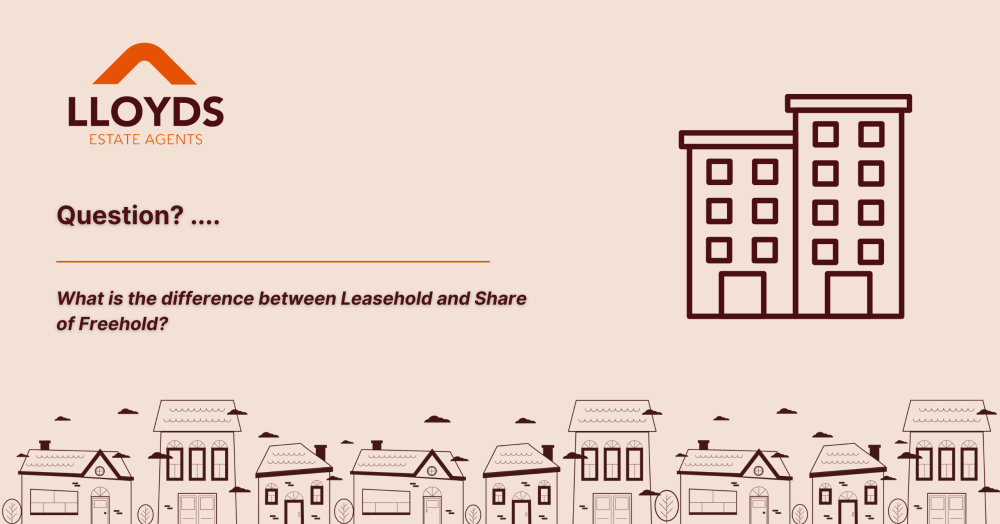In the UK, property ownership primarily falls into two categories: leasehold and freehold. Understanding these terms is crucial for prospective homeowners, as each carries distinct rights and responsibilities.
In the UK, property ownership primarily falls into two categories: leasehold and freehold. Understanding these terms is crucial for prospective homeowners, as each carries distinct rights and responsibilities.
Leasehold Property
A leasehold property means that you own the property for a set period, as specified in the lease agreement, but not the land on which it stands. This arrangement is common for flats, where individual ownership applies to the living space, while common areas and the land are owned by a freeholder. Leaseholders may need to pay ground rent, service charges for maintenance, and obtain permission for significant alterations. Once the lease expires, ownership reverts to the freeholder unless extended.
Share of Freehold Property
A "share of freehold" typically occurs in buildings divided into flats. Here, the freehold of the building is jointly owned by the flat owners, either directly or through a company. Each flat owner holds a lease for their individual unit but also possesses a share of the freehold, granting greater control over management decisions and costs.
Key Differences
Ownership Duration: Leasehold ownership is time-bound, whereas share of freehold offers a perpetual stake in the property.
Control and Costs: Share of freehold owners have more influence over maintenance and associated expenses, potentially leading to cost savings and better property management.
Lease Extensions: Extending a lease can be costly and complex for leaseholders. In contrast, share of freehold owners can often extend leases with minimal expense.
Recent Leasehold Reforms
In May 2024, the UK government enacted the Leasehold and Freehold Reform Act, introducing significant changes to benefit leaseholders:
Lease Extensions: The standard lease extension term was increased to 990 years for both houses and flats, up from 50 and 90 years, respectively.
Ground Rent: Ground rent was abolished for new leases in 2022. Existing leaseholders, however, may still be subject to ground rent unless they extend their lease or purchase the freehold.
Service Charges: The Act mandates greater transparency, requiring freeholders and managing agents to issue standardized bills, making it easier for leaseholders to scrutinize and challenge unreasonable charges.
Right to Manage: The process for leaseholders to take over the management of their building has been simplified, empowering them to have more control over maintenance and associated costs.
Additionally, as of January 31, 2025, the requirement for leaseholders to own their property for two years before extending or purchasing the freehold was abolished, allowing them to do so immediately upon ownership.
These reforms aim to address longstanding issues within the leasehold system, offering homeowners more control and financial predictability.

